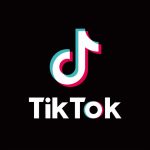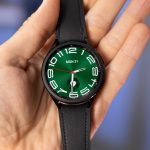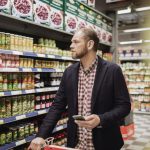Now, the Prime Minister has revealed new steps to reopening it but has stopped short of saying what vaccination rates would be needed to trigger it. The Weekend Australian reports that foreign students could be used to trial a new “green light, red light” system on the international border, allowing in vaccinated arrivals who pose no health risk.But Scott Morrison has resisted calls to nominate an vaccine rate that would be required for a broader reopening to the world.Speaking to The Weekend Australian, Mr Morrison said there was no magic number for vaccination rates “at this point”.“The jury is out on that and it will be a while, I think, before the epidemiologists can have greater clarity on that.“We have to be patient for the evidence and the science,” Mr Morrison said.The Prime Minister said any gradual reopening of the border would still include quarantine requirements for arrivals into Australia.NATIONAL CABINET ‘CRITICAL’In what has been described as a “critical” move, National Cabinet will meet on Monday to discuss Australia’s Covid-19 vaccine rollout amid fresh controversy over the AstraZeneca jab.It came after Australia’s vaccine rollout was dented by Australian Technical Advisory Group on Immunisation (ATAGI) advice that recommended that the AstraZeneca vaccine only be given to people “over 60”.It means the Pfizer vaccine is now the preferred vaccine for the two million Australians aged between 50 and 59. Federal Health Minister Greg Hunt said the meeting with state and territory leaders would bebrought forward after it was originally planned for July 9. Prime Minister Morrison has been out of the country at the G7 Summit.“This morning, Lieutenant-General John Frewen and myself and the team from Health briefed the Prime Minister on his return (from the G7),” Mr Hunt said on Friday.“His first order of business was to have a vaccination briefing. And the critical thing is he will be calling a meeting of the National Cabinet – most probably on Monday, subject to the availability of the premiers and chief ministers – to discuss the rollout.”Despite the recommendation change for the AstraZeneca vaccine, Mr Hunt said he expected the jab rollout would continue as planned.He said the purpose of the meeting was for the Prime Minister to get the states up to scratch on the rollout, and that he would also “thank” them.“The volume of vaccines coming into Australia hasn’t changed, and, you know, it’s important to understand we have 40 million Pfizer, we have over 50 million AstraZeneca that we’re expecting to be made available, 10 million Moderna and then there’s potential for Novavax,” he said.“That means that we will have, you know, a very large number of vaccines that are available in Australia.”Mr Hunt also announced that he had signed off on a Medicare item to encourage more over 50s to get vaccinated.“There will be a new Medicare item for over-50s to allow for a general practice consultation,” he said.“It will be at what’s known as the Level B equivalent, or $38.75, and it will be bulk-billed.”Earlier, the government moved to head off hesitancy prompted by the damaging revelation, urging Australians to push ahead with their Covid-19 vaccines where possible.Mr Hunt said the advice, prompted by the death of a 52-year-old NSW woman from blood clotting, continued a “very cautious” approach which had seen Australia avoid the high death tolls suffered overseas. “It was a difficult decision, but it was the right decision. We had very clear medical advice from the people who’ve helped keep us safe,” he told Today on Friday.The development raised the recommended age from 50, set in April, and prompted alarm over vaccine hesitancy.Mr Hunt stressed there were “incredibly low rates” of incidents associated with second doses, urging the 815,000 who had received their first AstraZeneca dose to complete their immunisation.“It’s in your interests, it’s in the national interest, to please come forward,” he said. PFIZER V ASTRAZENECAPeople who had received one dose of AstraZeneca would not be able to switch vaccines for their second, chief medical officer Paul Kelly said.“If we get more advice about that on the basis of the information from trials that are happening now in Europe and the UK and other places, then that advice may change,” he told the ABC.“It is a difficult thing we have learned in this pandemic. We need to keep track of the new advice that comes along and act on it. We adapt, we’re adapting again today.”Thursday’s development made Pfizer the preferred vaccine for people aged between 50 and 59, more than two million people, forcing a significant restructure of the nation’s rollout.The early rollout was hampered by supply issues in March, when the European Union delayed a shipment bound for Australia.Professor Kelly described the latest advice as a “challenge” with external supply “limited for the time being”, but said 40m Pfizer doses would arrive by the end of the year.Nearly 3m of those were expected to arrive onshore throughout July and the government was looking to expedite shipments where possible.Mr Hunt conceded international supply has proven problematic since March, when the EU delayed shipments over supply issues, but insisted the pressure was easing.“We’d gently ask for their patience, but Australians have been magnificent in coming forward … The first 4m took longer than we expected … (but) the last 2m have been faster than we expected,” he said.‘CANCEL YOUR PLANS’NSW Premier Gladys Berejiklian has urged Sydney residents to “cancel your plans” as authorities move to suppress a Covid-19 outbreak in city’s eastern suburbs.Ms Berejiklian said one new infection had been recorded – a man in his 50s, who attended Westfield at Bondi Junction.He went to the Myer store on June 12 where a previously known case also attended.“It appears from CCTV cameras that it could have been a very fleeting contact between the infectious person and this gentleman in Bondi Junction Westfield,” the Premier said.The man is the third confirmed case to have been infected by a driver who ferries around international flight crews.The driver contracted the Delta strain of Covid, which is considered “highly infectious”.Ms Berejiklian said anyone who had recently attended venues identified as potential infection points – which now span across the city – should stay home for the good of the community., even if they are listed as casual contacts.“We are recommending anyone who is a casual contact not to go anywhere because health might say in the next few hours you are a close contact and we don’t want you and your family and loved ones disappointed because you have exposed other people and not only yourself but the people you have come into contact with will have to spend two weeks at home,” she said.“We don’t want people to go through that. If you are a casual contact please don’t go anywhere, cancel your plans. “That is an extra precaution to make sure you don’t inadvertently cause harm to yourself or anybody else.”NSW chief health officer Dr Kerry Chant said rapid testing had shown the new case’s close contacts were not infectious.They have gone into 14 days of self isolation.The new case had an onset of symptoms on June 15 and is considered infectious from June 13. “While infectious this latest case visited venues in Redfern, Newtown, Bondi Junction and Campbelltown and travelled (by) train from Newtown to Bondi Junction on June 13 and from Bondi Junction to Campbelltown and return on June 15,” Dr Chant said.Dr Chant said the circumstances of transmission had shown the driver was a “highly infectious” case and Sydneysiders needed to be vigilant.His wife has also tested positive, as has an elderly woman who visited the Belle Cafe in Vaucluse on the same day as the driver.Dr Chant said the woman was infected despite sitting outside the cafe.Another man, 40, from Baulkham Hills has also tested positive and sparked a series of venue warnings in the city’s northwest.NSW Health is still investigating whether he is a false positive but took a cautious approach and put several venues he attended on alert.Sydney residents will also need to wear a face mask for “the next five days” on public transport.NSW Premier Gladys Berejiklian announced the change to restrictions would be in force from 4pm on Friday, saying she wants to “make sure if the virus is circulating, it doesn’t spread on public transport”. NED-3619-AstraZeneca blood clots-What we knowSTATE OF PLAY IN VICTORIAVictoria has recorded one new locally acquired Covid-19 case on Friday.The state’s health department announced one new local case about 9am, along with one new infection in hotel quarantine.In a promising sign, the health department said the local case was a “primary close contact of an existing case”.Acting Premier James Merlino said the new local case lived in the same household of a previously identified positive case associated with the Kings Park apartment complex outbreak in Southbank.It brings the total number of cases linked to the complex to nine.“We identified this case thanks to regular and rigorous testing of primary close contacts,” Mr Merlino said.“The public health team were able to contact trace her movements so there are no new additional exposure sites and that is a good outcome.”Victoria’s Covid-19 response commander Jeroen Weimer said the woman tested negative on June 14 before turning positive a few days later.He said she lived in the same corner of the complex that health authorities were focusing on.Mr Weimar said 199 people had been identified as close contacts to the positive Kings Park complex cases, with 19 other residents in the “most sensitive corner” testing negative so far.He said 137 of the 171 remaining residents had tested negative so far and they would continue to test going forward.The number of active cases in Victoria is 54, the same number as Thursday.The new cases came from 35,252 test results, while 16,710 vaccine doses were also administered in the past 24 hours.It comes as the state’s health department confirmed a Covid-19 patient had been transferred to intensive care on Thursday – the first time a positive case had been in ICU since May 27.There are six other Covid-19 patients in hospital receiving care, the health department said.Victoria’s coronavirus restrictions were eased overnight, with the border between metropolitan Melbourne and regional Victoria removed, along with the 25km metro travel limit.Masks are no longer required outdoors but are still recommended when social distancing of 1.5m couldn’t be maintained.Other restrictions eased include two visitors plus dependants per day being permitted to gather inside private homes in Melbourne and up to five people plus dependants in regional Victoria.Twenty people can gather outside in Melbourne and 50 in regional Victoria.Gyms can also open across Melbourne with density limits and CovidSafe plans in place, with hair and beauty services now able to operate without masks during service.
Powered by WPeMatico






